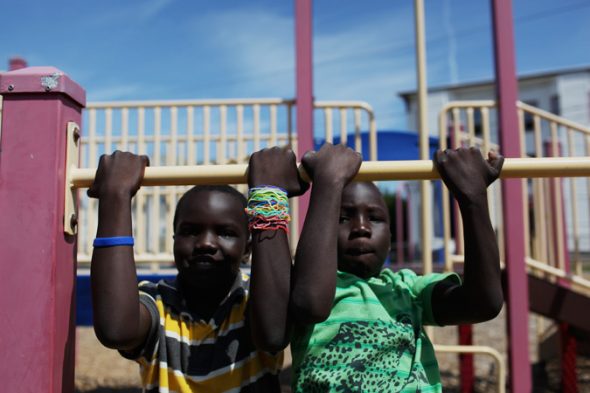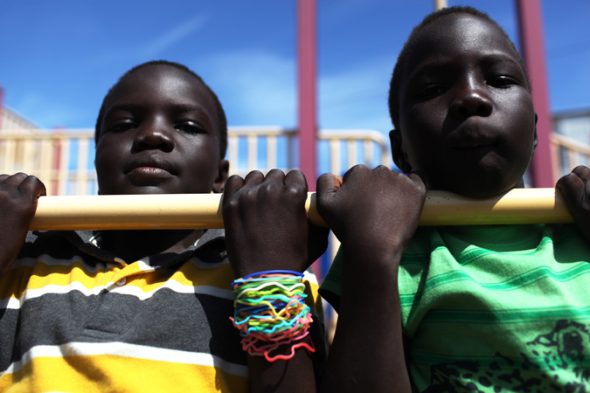By Aman Ali
Before heading out to Boston today, Bassam and I wanted to stay in Maine a little bit longer and visit the community in Portland.
We learned there was a fairly large refugee population from Iraq, Somalia, Afghanistan and Sudan. Why Maine? The United Nations helps refugees relocate to the United States and often sends them to Maine because it’s a state with a slow growing population that’s known for having welcoming and friendly communities.
One of the men who immigrated to Maine recently was Faisal, an Iraqi who runs a halal meat butcher shop downtown. Faisal came to Maine about three years ago after his life was too dangerous in Iraq working as an interperter for an American contracting company. Now he and his colleague (pictured below cutting meat) make a living running Sindibad Market, aptly named after the Sinbad the Arabian folktale sailor.

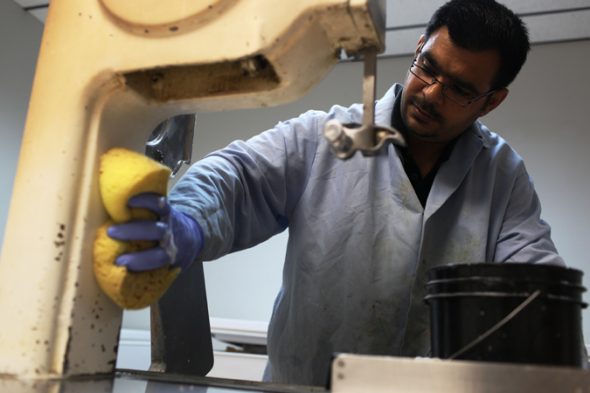
I looked around the store and got a chuckle after finding a shelf of Fair and Lovely cream. It’s a skin bleaching cream that’s popular among the South Asians and other cultures. It’s sad but many foreign cultures view people with lighter skin tones to be more beautiful than people with darker skin, and some people will go to the ridiculous length to use this cream to bleach their skin.
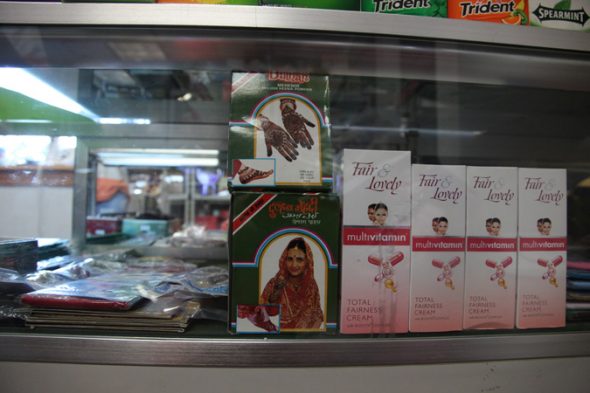
Faisal left Iraq because he said criminal militias are runng the streets. He and his wife would take turns escorting their kids to school because it was just too dangerous for them to go alone. So in that sense, he’s relieved his kids can go to school in Maine in a safe and welcoming environment.
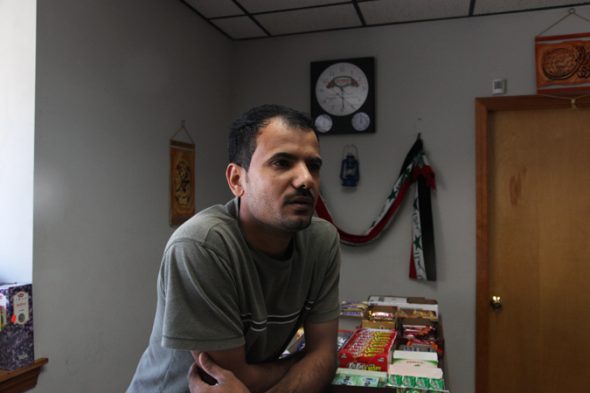
On the other hand, Faisal faces the struggle that many immigrant parents face – trying to get their children to appreciate the culture they come from. His kids have been in the country for less than three years and already they’re forgetting how to speak Arabic. While he wants his kids to assimilate in American society and do well here, he worries they may forget about their homeland.
Faisal also talked about how there’s a pretty active mosque in Portland, which because of time we unfortunately didn’t have time to visit. The mosque is populated primarily by Iraqi and Somali refugees. So I said “Wow, I’m sure you guys have the best food at Ramadan dinners.” Sadly, no. Like many Muslim communities across the country, the groups are segmented. The Somalis have their own meat shop and get their groceries there, and the Iraqis come to Faisal’s.
We were getting ready to drive out to Boston when we passed by a playground. Turns out it was a community center catered to the needs of refugees living around the housing projects. Here, most of the refugees are from Sudan. The group the Catholic Charities of Maine works with the U.N. to bring families from war torn countries to the states. I spoke Alfred Jacob, a Southern Sudanese refugee who runs the center, while Bassam juggled between taking photos of the kids playing soccer and trying not to get kicked in the head with a ball.
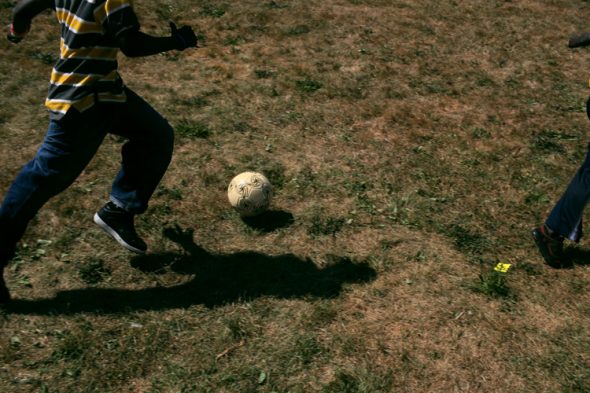
Many of the Sudanese children have households where both the parents are constantly working, primarily in Portland’s factories. Alfred said many of the children don’t have problems feeling welcomed at school, but they often have trouble learning to adapt to an American learning environment. So the community center comes in and helps them ease that frustration. Alfred said he dealt with the frustration of adjusting when he came here too, so he works with the kids from firsthand experience and tries to instill hope in them. “Because without hope,” he said, “what else can you have if you want to succeed?”
